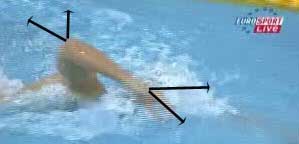Child Development: Essential Habits for Ages 1 to 6
**Child Development: Essential Habits for Ages 1 to 6**
**Acquisition-Related Food Habits**
**Ages 1 to 3:**
- Use a spoon for liquid or semi-liquid foods
- Use a fork
- Drink from a glass
- Maintain a clean table environment
- Chew and swallow properly with the mouth closed
- Carry plates and glasses (full or empty)
- Wait their turn to be served
- Eat everything they ordered, in the quantity consumed
- Clear the table
- Use a napkin
- Wash hands before and after eating
**Ages 3 to 6:**
- Control portion sizes
- Separate inedible parts
Tag Rugby Rules and Injury Treatment
Introduction to Tag Rugby
Tag Rugby is a fun and exciting form of non-contact rugby suitable for males and females of all ages and abilities. The game was first pioneered in England by Nick Leonard in 1991 as a way of introducing youngsters to the game of rugby. Since then, Tag Rugby has had phenomenal growth in popularity and has now spread to countries throughout the world.
The Object of the Game
The object of the game is to score tries. This is achieved by placing the ball behind the opponents’
Read MoreUnderstanding Abnormal Motor Development and Cerebral Palsy
Abnormal Motor Development
What is the Diversion from Normal?
For direct CNS injury:
- Development of pathological afferents by CNS injury
- Musculoskeletal apparatus determines the functional abnormality
- Insufficient differentiation of coordination
Primitive Reflexes
Maturation organization of progressive morphological structures
Classification
- Cutaneospinal Reflexes
- Tonic-Spinal Reflexes
- Extensor Reflexes
- Reactions: Moro, Galant
Latency Time
- Babkin: 0-4 seconds
- Rooting: 0-3 months
- Doll’s Eyes (a sign of pathology)
Ergonomics in Dentistry: Optimizing Work Practices
Ergonomics: Optimizing Work Practices in Dentistry
Ergonomics is a scientific discipline devoted to the study and analysis of human labor, especially the influence of anatomy, physiology, and other individual factors.
Objectives of Ergonomics
- Choose technology according to the available staff.
- Optimize human performance by improving their quality of life.
- Simplify work processes.
- Increase efficiency by reducing physical and mental fatigue and working time.
- Study the workplace environment.
- Promote the interests
Front Crawl: Mastering Hand Entry and First Pull
Hand Entry into the Water in Front Crawl
 Initial position: Just finished the recovery phase of the stroke. The arm is flexed in front of the shoulder. The elbow acts as a pivot, positioned higher than the hand. The forearm is directed forward, towards the water. The hand is slightly relaxed, flexed, and facing down and back, a few inches from the water.  Final position: The arm is slightly bent in front of the shoulder. The elbow is directed upwards and has not yet entered the water. The hand is |
Ancient Sports and Games: Mexico, Native America, Rome, and the East
Ancient Games and Sports in Mexico
Games of great violence were played, such as Tlachtli, or ball, which later turned into a ritual. They began playing in 500 BC.
Tlachtli
The game was a party where two men dressed as an eagle and a jaguar, respectively. There was a platform with a stake in the center. The leg of an enemy warrior was tied to it, and he was given a shield and a blunt sword. Both beat him until he was killed, and the winner was the one who killed him.
Hunting
When the morning dawned, they
Read More